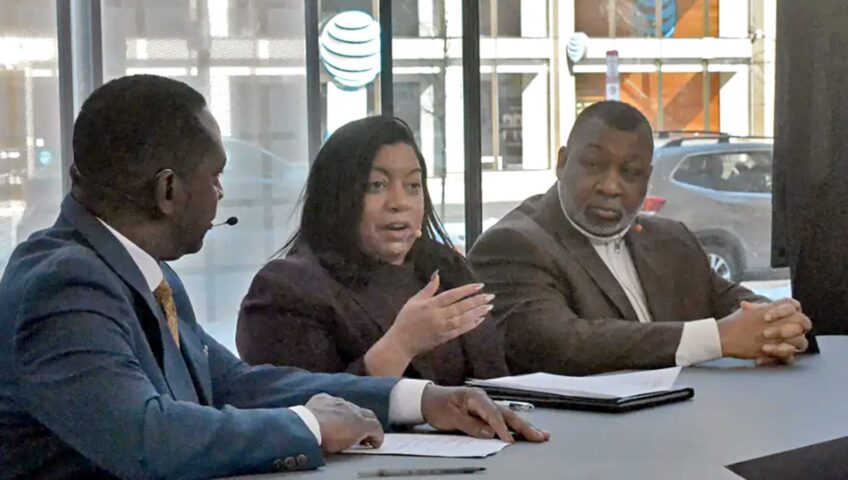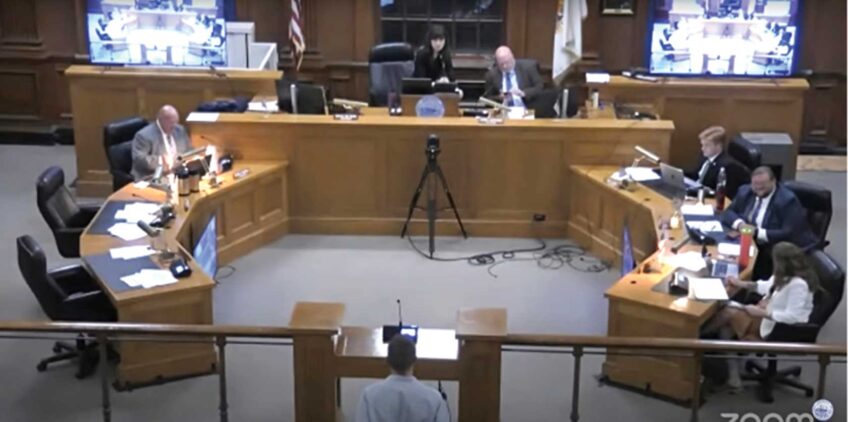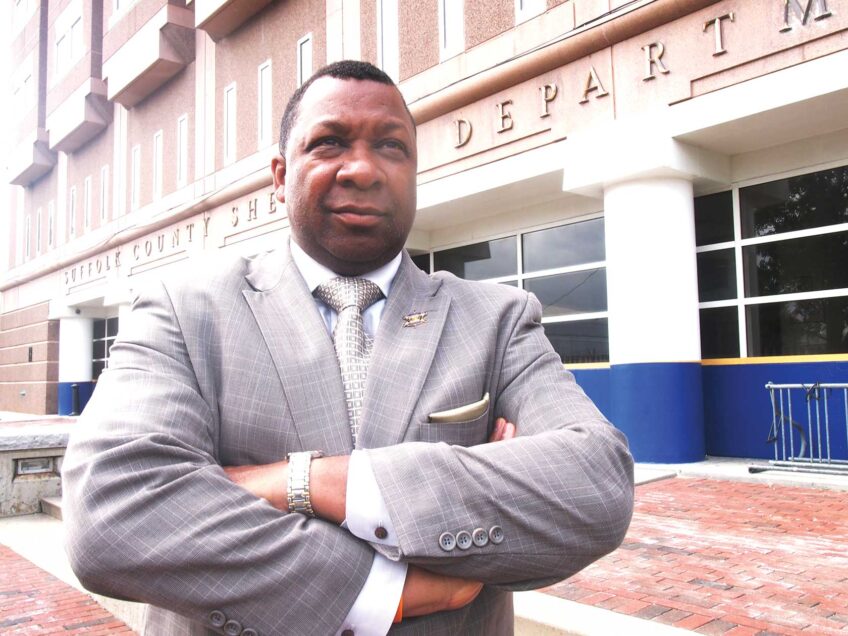Activists demand prison population reduction
Social distancing impossible in state’s crowded prison facilities
Recent data from the American Civil Liberties Union found that 800 inmates and staff in Massachusetts prisons have tested positive for coronavirus. Decarceration advocates released a 10-point plan urging Gov. Charlie Baker to depopulate prisons throughout the commonwealth.
“Social distancing is impossible to do in prisons,” said Rev. David Lewis of the Pioneer Valley Project during a Tuesday press conference. “Infections are spreading dangerously fast.”
COVID-19 spreads rapidly in congested spaces. Statewide safety regulations encourage people to remain six feet apart at all times. Most inmates are unable to maintain social distancing, however. Data from the Massachusetts Department of Corrections revealed that 72% of incarcerated people sleep and 70% eat within six feet of each other.
“These overcrowded facilities are emerging as hotspots, with 22% of the incarcerated being tested to date in Massachusetts having been found positive,” said Carlene Pavlos, executive director of the Massachusetts Public Health Association.
Press information provided by advocates included a breakdown of inmate infections reported by WBUR: at MTC Bridgewater, 25% of those tested were positive; at MCI-Shirley, 54% of those tested were positive; and at MCI-Framingham, 37% of the total incarcerated population of roughly 200 women were positive.
“Prisons and jails cannot be made safe,” said Pavlos. “Taking public health precautions requires autonomy, something impossible when someone is incarcerated. Urgent action to depopulate prisons and jails is needed now to save lives before this crisis grows worse.”
Jasmin Borges is a member of Families for Justice as Healing, an organization committed to ending the incarceration of women and girls. She previously spent 12 years at MCI-Framingham. She expressed concern for the women there now, noting that the Baker administration hasn’t provided adequate protection from the pandemic.
“The department of corrections, the Massachusetts Parole Board and Governor Baker have failed the women at MCI-Framingham,” she said, adding that these officials need to be held accountable for their negligence. She said that the administration did not implement a proper quarantine policy to keep the women and staff safe.
“At the same time that the CDC and governors across this country were creating and mandating social distancing guidelines to keep residents safe, the staff and administrators at MCI-Framingham were putting three women to a cell,” she added.
“The inadequacy and blatant disregard of human life is the normal culture in prisons,” said Borges. “It has existed well before COVID-19 and will continue to exist after COVID-19.”
Stacey Borden, founder of New Beginnings Reentry Services, was also incarcerated at MCI-Framingham. The time she spent at the facility was “toxic,” she said, and called it an unsafe place for women. She said that one of her friends spent time in several buildings with mice feces and no adequate hot water. The prison failed at least 107 inspections, she added.
Borden recognized the pandemic’s disproportionate impact on communities of color.
Borden recognized the pandemic’s disproportionate impact on communities of color.
“Black and brown communities are being hit hardest by COVID-19,” she said, and noted that these communities deal with generational impacts of incarceration. In 2017, the Massachusetts Department of Correction released the racial breakdown of the state’s incarcerated individuals. The data show that 26% of the incarcerated population was black, despite the fact that blacks only made up 8.9% of the statewide population that year.
The LGBTQ+ community is also at risk, noted Michael Cox, director of policy for Black and Pink. The LGBT community was “grossly impacted by government inaction” during the HIV epidemic, he said.
“Today we see the lives of prisoners discounted with the same callousness because of misconceptions about who we are,” he said.
Cox also said that prisons rarely adhere to regulations calling for a minimal amount of space in each cell.
“Prisons are overcrowded,” he said. “They’re so overcrowded that people are double-, triple- and quadruple-bunked.”
Cox, who was also previously incarcerated, said, “It really breaks my heart that Governor Baker, had I been incarcerated now, would have left me for dead in a cold prison cell.”
Over 1,000 Massachusetts prisoners have already been released. But research suggests that this may not be enough to ensure safety.
A 12-page report from the Oregon Department of Corrections showed that 40% of prisoners need to be released to achieve social distancing goals. In Oregon, that amounts to 5,800 inmates.
The Massachusetts advocates’ 10-point plan urges the administration to release qualified individuals that are within six months of parole and people who are medically vulnerable. It also notes, “Lack of housing should not be used as a reason people cannot be released,” and that the Baker administration should increase available living space for released individuals.
Many advocates also disagree with solitary confinement. The 10-point plan notes that such confinement is “an inappropriate means of protecting the health and safety of individuals,” as well as a violation of the Constitution’s 8th Amendment and state law.
“Solitary confinement is not an option and is not an appropriate response,” said Rev. Lewis.
According to ACLU data, 507 inmates and 293 staff members have tested positive statewide. Prisoners’ Legal Services of Massachusetts has reported eight deaths.
Borden said that now is the moment to release people from unsafe prisons.
“These are people, they’re human beings and they deserve a second chance,” she said.
Cox agreed.
“Compassion needs to be the North Star we use to navigate this crisis,” he said.






